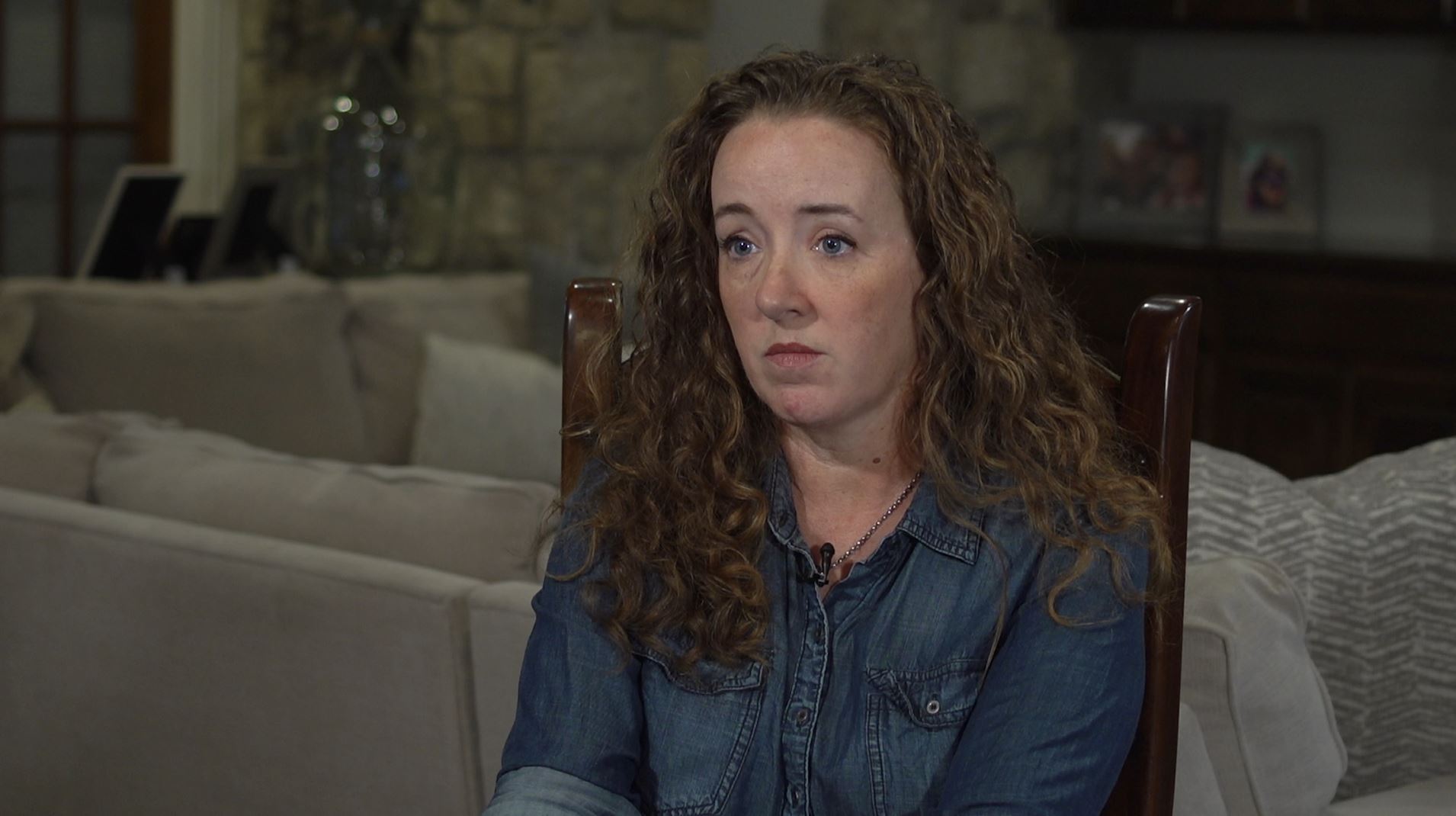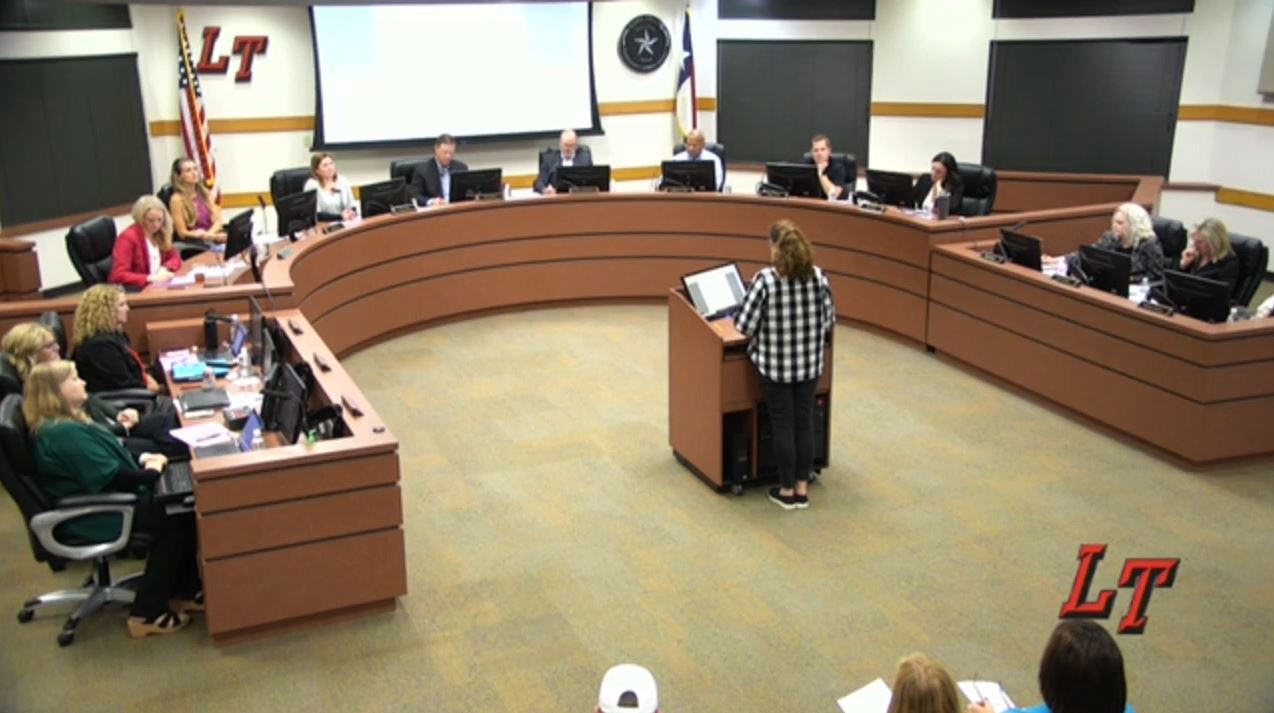- Shawna Mannon’s teenage son Carter is seriously allergic to peanuts.
- During one of Carter’s first football games as a varsity player at Lake Travis High School in Texas, his mom got a call from another parent, who told her some of his teammates put peanuts in his locker.
- The kids responsible were disciplined, but Mannon thought it didn’t go far enough and filed complaints.
AUSTIN (KXAN) — Carter’s mother dreads getting calls about his allergy.
When he was a baby, his family discovered he was allergic to peanuts. Now that he’s a teenager, he doesn’t leave his house without AirPods — and an EpiPen in his pocket. His mom carries multiple EpiPens in her purse. She says he would have minutes to react if the dust and oils from the nuts came into contact with his mouth or eyes.
During one of Carter’s first football games as a varsity player at Lake Travis High School, his mom got a call from another parent, who told her some of his teammates put peanuts in his locker.
“He was already on his way to the game,” said his mother, Shawna Mannon. “I don’t know if he’s OK. I just need to know what is going on.”

Lake Travis ISD parent Shawna Mannon talks about how peanuts were left in her allergic son’s locker (KXAN Photo/Chris Nelson)
Despite what happened in the locker room, he played in the game. Afterward, he told his mom about how peanuts fell from his jersey hanging in his locker. He told her how he quickly went to wash his hands before touching his face. And how hives had already started to crawl up his arm. She said she could still see the hives as he told her the story.
“I think the hardest part was, one, it was his teammate. You know, you have this brotherhood and football, and it was disappointing that it was his teammate,” Mannon said.
She later found out his teammates knew about the severity of his allergy before filling his locker.
“A couple of teammates on his varsity football team were asking about his allergy to peanuts and asked if it could kill him,” Mannon said. “He said yes, it absolutely could.”

Shawna Mannon speaks in front of the school board in November 2023 (Lake Travis ISD Photo)
More than a month later, Mannon stood before the Lake Travis school board in November. She was livid. The kids responsible were disciplined, but she expected it to be to a different level. They were benched from some football games. She was told the district’s athletic director and head football coach were determining the discipline.
The district said it worked with other law enforcement agencies and consulted the assistant district attorney’s office, but ultimately, the school district’s police department decided criminal charges were not warranted.
“These boys were handed minimal consequences,” Mannon told the school board on Nov. 16. “Since this incident, my son has faced backlash and retaliation almost daily.”
After the first incident, Mannon said her son found a peanut butter granola bar in his locker.
The district admits it didn’t open a bullying investigation until after she spoke in front of the school board. When it concluded, school officials decided what happened to Mannon’s son was not bullying.
‘Not enough is happening‘
The district said it determined the legal elements of bullying were not met. The Texas Education Code defines bullying as “an act or pattern of acts that physically harms a student or materially disrupts the educational process.”
“I don’t know what else to call it,” Mannon said.
Neither did State Sen. Jose Menendez, D-San Antonio. For years, Menendez has successfully passed legislation to give districts more power to investigate bullying in schools, including defining cyberbullying and allowing districts to expel students who engage in it when it threatens the lives of their classmates. The law was named after 16-year-old David Molak. He took his own life in 2016 after being harassed and threatened in text messages and over social media. Despite the changes to Texas law, Menendez said he still hears concerns from families that feel school districts aren’t taking bullying seriously enough.
“That not enough is happening. That they report it. The report gets created, but they still don’t see the discipline, in some cases,” Menendez said.
Nexstar’s KXAN found that since September 2021, the Texas Education Agency has received more than 500 complaints about bullying happening on Texas public and charter school campuses and the districts’ policies on handling the incidents. Data shows the agency sends most of those complaints back to the local school district for the grievance process to resolve.
The agency said it cannot guide school districts on handling discipline regarding bullying because local school districts have control. Agency officials said districts should consult with their legal counsel to ensure compliance with state laws on bullying, including the requirement for local boards of trustees to adopt a policy and necessary procedures concerning bullying prevention.
Data obtained through open records requests show that of the hundreds of complaints, 13 landed in the agency’s compliance review unit and resulted in TEA ordering a district or charter to make changes. But it’s unclear what changes districts were ordered to make. The agency told KXAN that the documents detailing the changes ordered by the state are confidential.
There are at least 60 bullying complaints that were referred to units that investigated educator misconduct and special education where it’s unclear if it led to TEA ordering the district to make changes.
KXAN Investigators obtained data and talked to TEA about how they handle complaints about bullying policies. SOURCE: Texas Education Agency (KXAN Graphics/Christina Staggs)
Sen. Menendez said that before the next regular session, he wants to request an existing legislative committee to research bullying in Texas schools.
“I would like to see — thanks to this and others — what we are doing as a state to focus on creating a safe environment. What does a safe environment mean?”
Bullying safeguards in America
Across the country, some states go beyond what Texas has implemented to prevent bullying. Several acknowledge bullying can include, but is not limited to, bullying based on characteristics such as race and sexuality. Texas law does not specify protected groups.
Several states also require school districts to review their bullying policies on a cycle. New Jersey has one of the strongest bullying laws in the country. It requires school districts to review their policies annually with experts. Texas does not.
The football season is over, and Mannon’s son turned 16. She said things have calmed down in the months since the incident. She has not filed a complaint with the state, but she has filed a complaint with the U.S. Department of Education’s Office of Civil Rights. She is also in the middle of a grievance with Lake Travis ISD. She and her attorney argue the district did not follow its policy when it allowed the athletic department to determine discipline. She met with the school district for a grievance hearing in January.
The district told KXAN on Tuesday that TEA reviewed the incident and concluded the district “addressed all concerns with regard to potential bullying and food allergy compliance and found no violations of law or policy.”
“I’m hopeful right now. I’m really hopeful that they will do the right thing,” Mannon said. ”[This] made it hard for him to relax and enjoy playing football. And that’s really all he wanted. He wanted just to play football.”
Digital Data Reporter Christopher Adams, Investigative Photographer Chris Nelson, Director of Investigations & Innovation Josh Hinkle, Graphic Artist Christina Staggs and Digital Director Kate Winkle contributed to this report.
Copyright 2024 Nexstar Media Inc. All rights reserved. This material may not be published, broadcast, rewritten, or redistributed.














